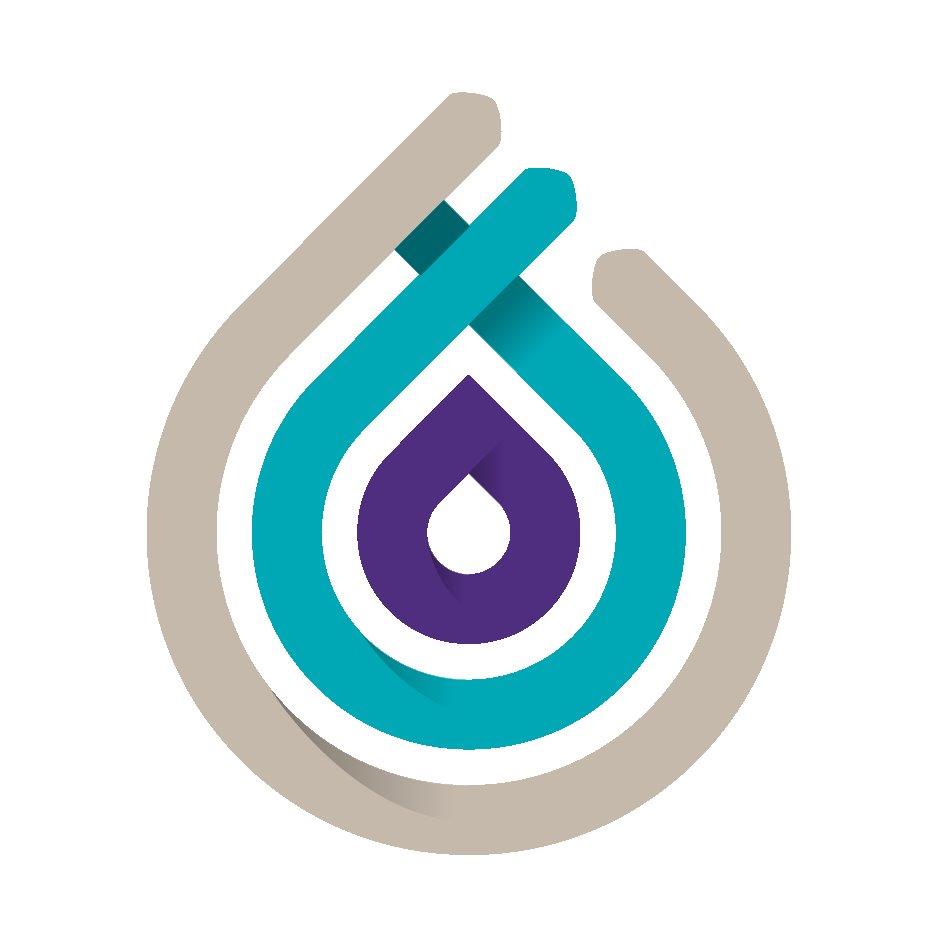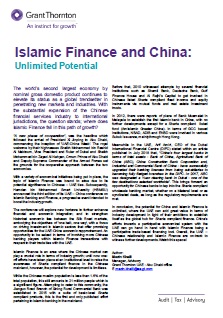-
Statutory Audit
We conduct an integrated audit, which combines the financial statement audit,independent and objective assurance on financial information, transactionsand processes.
-
Limited Review
We offer services relating to reviews of historical financial informationby expressing negative assurance on such historical financial information.
-
Agreed Upon Procedures
We engage with organisationsto perform specific procedures and report findings to conform to their needs.
-
Financial Reporting Advisory Services (FRAS)
Our team provides timely advice on the impact of accounting changes to assist businesses in the development of an appropriate implementation roadmap.
-
Business Consulting
Grant Thornton UAE provides organisations with implementable plans that drive sustainable growth strategies to grow and optimise their business performance.
-
Business Risk Services
Organisations need to understand risks thoroughly to be able to manage them better. Grant Thornton UAE helps businesses achieve the best balance between minimising risk exposure, optimising profitability and developing compliance review checklists.
-
Regulatory Advisory Services
Grant Thornton UAE's extensive understanding of the overarching supervisory framework within the region equips our professionals to support financial institutions comply and abide by the set of regulatory mandates throughout the rapidly evolving ecosystem.
-
Financial Advisory
Grant Thornton UAE works with organisations on transactions from start to finish, assisting with strategy, identifying risks, executing deals, and helping to unlock their potential for growth and value creation.
-
Restructuring Advisory
Grant Thornton UAE is committed to realising value for shareholders, in a way that recognises and supports the interests of all stakeholders. Our solutions maximise value, provide clarity and direction, and accelerate recovery and transformation for businesses.
-
Technology Advisory & Cybersecurity
IT and technology are fundamental to drive the performance of businesses. Through leveraging the power of technology, Grant Thornton UAE helps organisations define and identify growth opportunities to achieve value-driven transformation and innovation.
-
Forensics
Fraud and corruption pose a growing challenge worldwide. As the commercial landscape changes, an increasingly regulated environment requires stringent governance and compliance processes. Grant Thornton UAE helps organisations navigate challenges and crisis with a hands-on approach coupled with the use of technology.
-
ESG Services
The Environment, Social and Governance (ESG) agenda has gained significant traction over the years, to become one of the key strategic aspects of any business. It is imperative that all organisations, irrespective of industry sector, engage with their stakeholders and prioritise ESG practices to unlock sustainable growth opportunities.
-
Business Process Solutions
Our team at Grant Thornton offers comprehensive and cost effective outsourced solutions, enabling stakeholders and business owners to focus on their core business goals.
-
Corporate Tax
Our diversified team of corporate tax subject matter experts combines a perfect blend of international experience across several industry sectors, technical expertise, and commercial nuances with a commitment to deliver exceptional value to your business.
-
VAT
The VAT team at Grant Thornton is well versed with the VAT Laws applicable across the region and holds valuable experience and professional accreditation in assisting clients across diverse industries to comply with the VAT obligations.
-
Transfer Pricing
Grant Thornton UAE assists its clients in providing transfer pricing solutions that are implementable and operational, considering the facts and concerns of its clients.
-
International Tax and Tax Due Diligence
Grant Thornton UAE supports multinational groups to optimise their tax structures. We can also assist businesses in analysing existing group transactions and inter-group supplies, as well as advising on potential implications of various taxes to facilitate an efficient Group tax structure.
-
Economic Substance Requirements
Economic Substance rules were introduced in the UAE in 2019, requiring UAE businesses that undertake certain ‘Relevant Activities’ to maintain and demonstrate adequate substance.
-
Customs and International Trade
The team at Grant Thornton is positioned centrally to assist the businesses with global cross-border tax structuring, planning and compliance needs.
-
Excise Tax
We provide Excise Tax related advisory and compliance services to the producer, importer, and the storekeeper of excisable goods
The world’s second largest economy by nominal gross domestic product continues to elevate its status as a global trendsetter in penetrating new markets and industries. With the substantial expansion of the Chinese financial services industry to international jurisdictions, the question stands; where does Islamic Finance fall in this path of growth?
“A new phase of co-operation”, was the headline which followed the arrival of President Xi Jinping to Abu Dhabi, commencing the inception of 'UAE-China Week'. The royal welcome by their highnesses Sheikh Mohammed bin Rashid Al Maktoum, Vice President and Ruler of Dubai and Sheikh Mohammed bin Zayed Al Nahyan, Crown Prince of Abu Dhabi and Deputy Supreme Commander of the Armed Forces set the grounds for the cooperative approach between the two economies.
With a variety of economical initiatives being put in place, the topic of Islamic Finance was bound to arise due to its potential significance to Chinese – UAE ties. Subsequently, Hamdan bin Mohammed Smart University (HBMSU) announced the third edition of its UAE – China conference on Islamic Banking and Finance, a progressive event intended to boost the industry growth.
The conference will explore new horizons to further enhance financial and economic integration; and to strengthen historical economic ties between the Silk Road markets, embodying the objectives of 'one belt, one way', with a focus on driving investment in Islamic sectors that offer promising opportunities for the UAE-China economic rapprochement. An opportunity to be seized in terms of involving more Chinese banking players within Islamic Finance transactions with respect to their trade ties with the UAE.
Islamic Finance is an area where the Chinese market can play a crucial role in terms of industry growth; until now one-off efforts have taken place at an institutional level to raise the awareness of Sharia compliant finance in the Chinese mainland, however, the potential for development is limitless.
While the Chinese muslim population is less than 1.6% of the total population, this still amounts to 21 million people which is a significant figure. Attempting to cater to this community, the Jianguo Road Branch of Xining Rural Commercial Bank was established in 2015 with a suite of basic-level Sharia compliant products, this is the first and only published effort pertaining to Islamic banking in the mainland.
Before that, 2010 witnessed attempts by several financial institutions such as Shamil Bank, Deutsche Bank, Gulf Finance House and Al Rajhi’s Capital to get involved in Chinese listed Sharia compliant fixed income and equity instruments via mutual funds and real estate investment trusts.
In 2012, there were reports of plans of Bank Muamalat in Malaysia to establish the first Islamic bank in China, with no further developments except for a Sharia compliant listed fund (AmIslamic Greater China). In terms of GCC based institutions, NBAD, ADIB and ENBD were involved in various Sukuk issuance, mainly through Hong Kong.
Meanwhile in the UAE, Arif Amiri, CEO of the Dubai International Financial Centre (DIFC) stated within an article published in July 2018 that, “China’s four largest banks in terms of total assets - Bank of China, Agricultural Bank of China (ABC), China Construction Bank Corporation and, Industrial and Commercial Bank of China - have successfully upgraded their banking licenses from being subsidiaries to becoming fully fledged branches in the DIFC. In 2017, ABC was designated a Yuan clearing bank in Dubai - one of the few destinations selected worldwide”. This brings forward an opportunity for Chinese banks to tap into the Sharia compliant wholesale banking market, whether on a bilateral level or as syndicated deals, as long as the regulatory requirements are met.
In conclusion, the potential for China and Islamic Finance is unlimited, where the UAE can add great value in terms of industry development in light of their ambitions to establish itself as the global hub for Sharia compliant finance. China’s efforts towards a participative economical system with the UAE can go hand in hand with Islamic Finance being a participative trade-based financing tool. Overall, the UAE – Chinese relationship and Islamic Finance are on-track to witness further developments. Watch this space!
Author:
Mazin Khalil
Manager, Advisory
Grant Thornton UAE - Abu Dhabi office
E mazin.khalil@ae.gt.com

